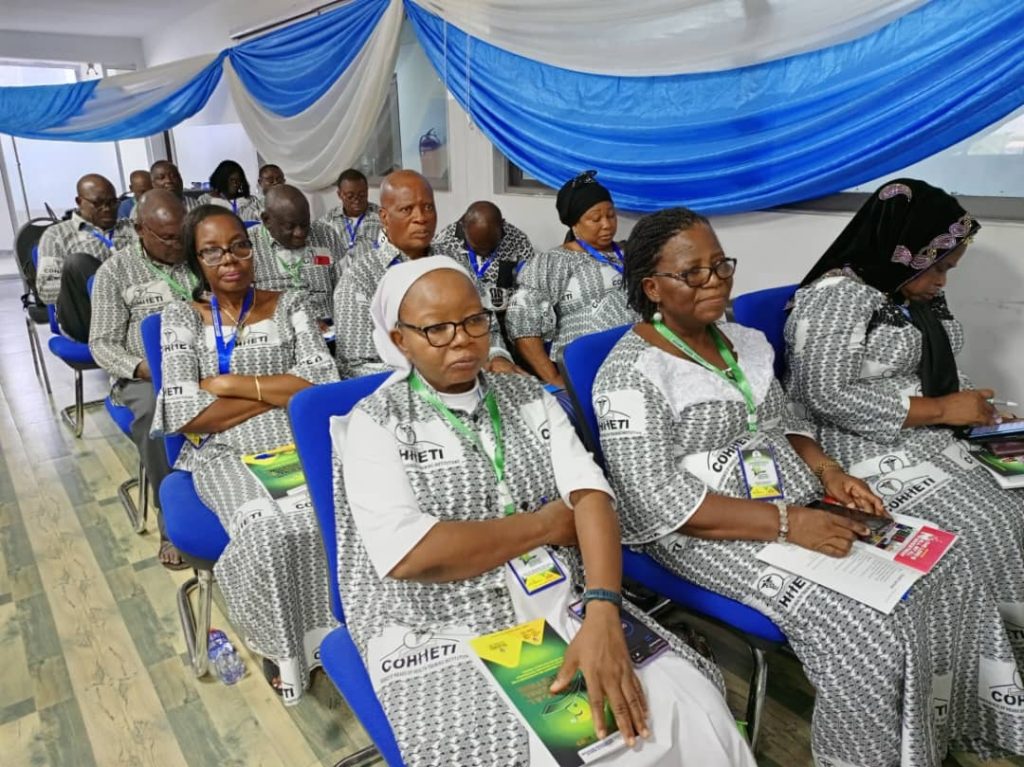By Godfred A. Polkuu
Bolgatanga, Oct. 27, GNA – Professor Ahmed Abdullai Jinapor, the Acting Director-General of the Ghana Tertiary Education Commission (GTEC), says Nursing and Midwifery Training Colleges (NMTCs) qualify to run degree programmes if they justified their applications.
He noted that degree programmes were accorded to institutions based on merit, capacity, case-by-case application, and said it was not true that NMTCs could not award degrees.
Professor Jinapor said this in response to a question by Madam Margaret Mary Alacoque, the President of the Conference of Heads of Health Training Institutions (COHHETI) as to why the NMTCs could not be upgraded to degree awarding institutions.
She said “The Colleges of Education have moved, the Polytechnics have moved, the Allied Health Professions Schools have moved to degree awarding, even the Senior High Schools are about moving to Diploma.
“Why are the NMTCs left behind?” the COHHETI President asked.
Professor Jinapor, who delivered the key-note address at the COHHETI’s 16th Annual General Meeting (AGM) held in Bolgatanga, told the Heads that “You all qualify to run degree programmes, you just need to justify your application.”
As part of measures to deal with delays in accreditation processes by the Health Training Institutions (HTIs), which was a concern to the COHHETI, the Acting Director-General said the GTEC would organize training programmes to fast-track the process of accreditation for the HTIs.
The AGM was on the theme: “Quality assurance and accreditation in the training of healthcare professionals: The anchor for quality education.”

Professor Jinapor said quality assurance and accreditation in the training of healthcare professionals was the bedrock upon which a strong and reliable healthcare system was built.
“Countries like ours cannot afford to compromise on the quality of their healthcare education. By establishing and reinforcing some of these systems, we can ensure that our healthcare professionals are well-equipped to meet the healthcare needs of our communities and drive progress in our nation.
“We need to embrace this responsibility with dedication and vigilance, knowing that in doing so, we contribute to the betterment of healthcare and, ultimately, the well-being of our fellow human beings,” he said.
The Acting Director-General was hopeful that through the concerted efforts of stakeholders, the training of healthcare professionals in the country, hinged on the beacon of excellence and the provision of quality education that does not only serve Ghanaians, but was as a model for the world.
Mr Stephen Yakubu, the Upper East Regional Minister, urged the COHHETI to continue to support and co-operate with the Ministry of Health and the Ghana Health Service to review, formulate and implement policies on health education in line with quality assurance.
That, he said would indeed make the training of health professionals the anchor for quality assurance and accreditation in the training of healthcare professionals.
Mr Yakubu said the COHHETI had over the years grown from strength to strength and remained significantly influential in the health administration and delivery system through several initiatives, innovations and interventions.
He commended leadership and members of the COHHETI for their contribution to healthcare delivery in the country and advised nurses to show love and compassion to patients in their care.
GNA